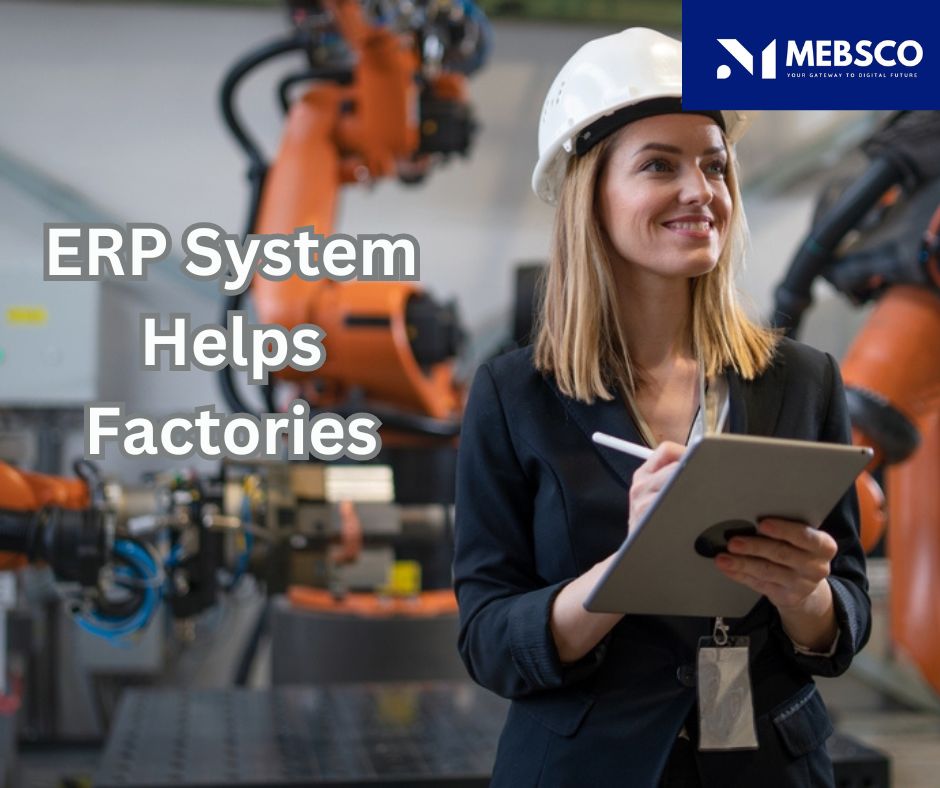About artificial Intelligence (AI):
Artificial Intelligence (AI) is improving industries daily, pushing boundaries in technology and human interaction. As AI evolves, it promises to redefine how businesses operate, how people live, and even how society functions. The rise of AI is not just a technological shift; it’s a factor transformation touching every aspect of life. From healthcare and education to retail and entertainment, AI’s capabilities are setting the stage for a future driven by intelligent systems.
AI’s Impact on Industries
In business, AI is becoming a strategic asset, automating processes, predicting trends, and driving efficiencies. In manufacturing, AI-powered robots streamline production lines, reducing human error and increasing output. The financial industry leverages AI for algorithmic trading, fraud detection, and personalized banking experiences. In retail, AI is used for inventory management and customer personalization, making shopping experiences more dynamic and tailored to individual needs.
In the healthcare sector, AI’s influence is equally transformative. From diagnosing diseases to personalized medicine, AI assists doctors in making more accurate diagnoses by analyzing vast datasets and identifying patterns humans might overlook. Telemedicine, powered by AI, enables healthcare access in remote areas, and innovations like AI-driven robotic surgeries are improving patient outcomes.
AI and Everyday Life
AI is increasingly woven into the fabric of daily life. Virtual assistants like Siri and Alexa are commonplace, helping users perform tasks, answer questions, and manage schedules through voice commands. In transportation, AI powers autonomous vehicles, which promise to reshape how people travel and reduce traffic accidents. AI also enhances entertainment through personalized content recommendations on platforms like Netflix and Spotify, creating a more engaging user experience.
AI-driven chatbots and customer service applications are rapidly improving response times and customer satisfaction. In smart homes, AI regulates energy use, controls lighting, and enhances security systems, making living environments more comfortable and secure.
The Ethical Considerations of AI
Despite the overwhelming benefits, the rise of AI brings with it a host of ethical challenges. There are growing concerns over data privacy as AI systems require vast amounts of personal data to function effectively. Companies must ensure that the collection and use of such data are ethical and transparent. Additionally, questions arise over the potential for AI to replace human jobs, especially in industries such as manufacturing, where automation is already displacing traditional roles.
Another pressing issue is the risk of algorithmic bias. AI systems, while powerful, are still susceptible to reflecting the biases present in the data they are trained on. This can lead to unfair treatment in areas like hiring practices, criminal justice, and credit scoring. Ensuring that AI systems are designed with fairness and inclusivity in mind is critical to their long-term success and societal acceptance.
The Future of AI
The future of AI holds incredible promise. With advancements in machine learning, neural networks, and natural language processing, AI’s capabilities are expanding at an unprecedented pace. Researchers are now focusing on making AI more explainable and transparent, ensuring that its decisions can be understood by humans and applied in ways that build trust.
AI is also becoming more emotionally intelligent, learning to recognize and respond to human emotions. This development could revolutionize industries like customer service and mental health, where empathy and emotional understanding are key. As AI continues to grow, its potential to enhance lives and drive innovation is vast, but it must be coupled with responsible development and regulation.
The rise of AI is an extraordinary journey that’s only just beginning. While it offers immense possibilities for enhancing productivity, creativity, and everyday life, it also requires careful consideration of its implications on society. Embracing AI responsibly will ensure that its benefits are maximized while mitigating risks to privacy, employment, and equality.
How ERP is connected to AI:
After we took the jurney above in the AI story, we will now explore the relation between AI and ERP system. In recent years, the integration of Artificial Intelligence (AI) with Enterprise Resource Planning (ERP) systems has gained significant momentum. Businesses today face increasing complexities, and AI is emerging as a critical tool for automating, optimizing, and making intelligent decisions. The traditional ERP, known for centralizing data and managing operations like finance, human resources, and supply chain management, is being transformed by AI into a more adaptive, predictive, and intelligent system. The synergy between AI and ERP systems is driving business transformation, offering benefits across every sector and department.

[Ask us about “School Next” system which we are using AI within]
AI-Driven Decision Making
One of the most powerful outcomes of combining AI with ERP systems is the enhanced decision-making capability it brings to the table. Traditional ERP systems store vast amounts of data, but processing and analyzing this data in real time can be overwhelming for human operators. AI changes this by using machine learning algorithms to sift through vast datasets, identify patterns, and predict future trends. This predictive capability allows businesses to move beyond reactive decision-making toward proactive strategies. AI-powered ERPs can forecast sales, predict stock requirements, and optimize production schedules with unprecedented accuracy.
For instance, in a manufacturing environment, AI can analyze equipment data and predict when a machine is likely to fail, allowing businesses to perform preventative maintenance. This minimizes downtime, increases productivity, and extends the life of expensive machinery. In a retail setting, AI in ERP can predict consumer trends based on past behavior, allowing businesses to optimize inventory management and avoid stockouts or overstocking.
Furthermore, AI improves financial decision-making by analyzing cash flow patterns, providing recommendations on the best times to invest or save. With AI embedded in ERP systems, business leaders have access to real-time insights that drive strategic growth.
Automation and Operational Efficiency
AI enhances ERP systems by automating many routine processes, freeing up valuable human resources for more strategic initiatives. Tasks such as invoice processing, purchase orders, and payroll management, which traditionally required manual intervention, can now be fully automated through AI-driven ERPs. By eliminating the risk of human error and reducing the time required for these repetitive tasks, AI allows businesses to operate with greater efficiency.
Moreover, AI optimizes processes by learning from historical data. In supply chain management, for example, AI algorithms can continuously adjust inventory levels based on projected demand, leading to more efficient logistics operations. AI also improves the accuracy of demand forecasting, which is vital for maintaining an optimized supply chain. By ensuring that the right products are in stock at the right time, AI minimizes both inventory holding costs and the risk of stockouts.
Customer service operations also benefit from AI-powered ERP systems. AI-driven chatbots can handle customer inquiries, process orders, and provide real-time updates on order status, freeing customer service agents to focus on more complex issues. This not only improves customer satisfaction but also reduces the operational costs associated with managing large customer service teams.
Personalized User Experience with AI
One of the major challenges businesses face when implementing ERP systems is user adoption. Traditional ERP systems can be complex, and employees may find it difficult to navigate their features and functionalities. However, AI is improving the user experience by providing more personalized and intuitive interactions within ERP systems.
AI-powered assistants, like virtual agents, can simplify tasks for users by answering queries, generating reports, or even completing tasks on behalf of the user. This ease of use encourages faster adoption of ERP systems across departments, resulting in a more efficient workflow.
Moreover, AI can track how users interact with the ERP system and provide personalized recommendations for optimizing workflows or completing tasks more efficiently. This tailored approach not only enhances productivity but also ensures that users get the most out of the ERP system, improving overall business performance.
Predictive Analytics and Business Intelligence
AI and ERP systems together unlock the full potential of predictive analytics, enabling businesses to move beyond traditional reporting and forecasting methods. Predictive analytics powered by AI allows businesses to anticipate market changes, customer behaviors, and operational risks before they happen. Whether predicting a sudden surge in demand or identifying inefficiencies in the supply chain, AI helps businesses stay ahead of the curve.
With AI-enhanced ERP systems, companies can generate more accurate forecasts based on real-time data analysis. These forecasts enable better planning and resource allocation, ultimately reducing costs and improving profitability. AI can also identify hidden opportunities, such as identifying high-potential markets or areas for product innovation.
In terms of business intelligence, AI enables ERP systems to gather and analyze data across departments and provide comprehensive reports. With AI’s ability to process and analyze large amounts of data, business leaders gain deeper insights into operational performance, market trends, and financial health, empowering them to make informed, data-driven decisions.
AI-Enhanced ERP in the Supply Chain
The supply chain is one of the most critical components of any business, and it stands to gain the most from the integration of AI with ERP systems. AI brings predictive analytics, automation, and optimization capabilities that transform supply chain operations, making them more resilient and efficient.
For example, AI can monitor supply chain data in real time, identify potential disruptions, and recommend alternative routes or suppliers to mitigate risk. AI also helps businesses optimize their procurement processes by predicting demand fluctuations, ensuring that inventory levels are maintained at optimal levels. This reduces waste and costs while ensuring that products are delivered to customers on time.
AI-driven ERP systems also improve supplier relationship management. By analyzing supplier performance data, AI can recommend the best suppliers based on criteria such as cost, reliability, and lead times. This enables businesses to build stronger, more efficient supply chains that support long-term growth.

[Browse though our products and read more about “Factory Next” ]
Challenges of AI-ERP Integration
While the benefits of AI in ERP systems are vast, there are challenges businesses need to address before integrating AI. The most significant challenge is the need for clean, structured data. AI algorithms rely on high-quality data to function effectively, and businesses with fragmented or poor-quality data may struggle to realize the full potential of AI.
Additionally, implementing AI in ERP systems can be costly, particularly for small and medium-sized enterprises (SMEs). The initial investment in AI technology, as well as the ongoing costs of maintaining and training AI algorithms, can be a barrier to entry for some businesses. Furthermore, AI integration requires a cultural shift within the organization. Employees must be trained to work with AI-powered systems, and there may be resistance to change, especially if automation threatens job security.
Another critical consideration is data security. AI systems rely on access to vast amounts of sensitive data, and businesses must ensure that this data is protected. As AI-driven ERP systems evolve, ensuring compliance with data protection regulations and maintaining robust cybersecurity measures will be essential.
The Future of AI-Driven ERP Systems
The fusion of AI and ERP is transforming the way businesses operate by enabling them to optimize processes, make data-driven decisions, and improve overall efficiency. While the implementation of AI in ERP systems comes with challenges, businesses that embrace this technology will be better positioned to stay competitive in a complex market landscape.
As AI continues to evolve, its role in ERP systems will only grow. Businesses that leverage AI-driven ERP systems will be able to achieve greater agility, scalability, and innovation. The future of business lies in the intelligent automation and insights provided by AI-ERP systems, and those who adopt these technologies will have a clear advantage in tomorrow’s digital economy.
AI and ERP Systems: Transforming Schools and Factories
Artificial Intelligence (AI) is steadily revolutionizing various sectors by optimizing processes, automating routine tasks, and providing actionable insights through data analysis. One of the areas where AI is making a significant impact is in Enterprise Resource Planning (ERP) systems. These systems, traditionally used to manage business processes, have now evolved into intelligent platforms that can streamline operations in schools and factories.
Incorporating AI into ERP systems amplifies their functionality, improving both the efficiency and decision-making capabilities of organizations. In the context of schools and factories, AI-powered ERP systems not only automate processes but also offer predictive capabilities and real-time insights, resulting in smarter management of resources and workflows.
AI in Schools: The Intelligent Classroom
In educational institutions, an ERP system serves as the backbone of administrative and academic operations. Integrating AI into such systems transforms the educational experience for students, faculty, and administrators alike. With AI, schools can utilize intelligent tools to improve learning outcomes, reduce manual work, and streamline school management.
1. Personalized Learning and Academic Performance
One of the most transformative applications of AI in schools is its ability to deliver personalized learning experiences. AI-powered ERP systems analyze student data such as test scores, assignments, and learning patterns, and then recommend customized educational resources to improve student performance. For instance, if a student is weak in a particular subject like math, the system can suggest extra tutorials, assignments, or videos targeted to that student’s learning needs.
2. Predictive Analytics for Student Success
Another powerful feature is predictive analytics. AI can analyze historical data, including student attendance, behavior, and grades, to predict future performance and even dropout risks. Schools can use this information to proactively offer interventions like tutoring or counseling. For instance, an AI-based ERP can identify students with declining attendance rates or falling grades and send automated alerts to teachers and parents, enabling timely assistance.
This predictive approach allows schools to address potential problems before they escalate, creating a more supportive learning environment.
3. Automating Administrative Tasks
AI is particularly useful in automating repetitive administrative tasks such as student enrollment, fee processing, attendance tracking, and report generation. In many cases, AI-powered ERP systems enable self-service portals where students and parents can access information or complete tasks without human intervention. This significantly reduces the workload on school staff, allowing them to focus more on educational activities.
For example, AI can automate the generation of report cards, process payroll for teachers, and even predict future staffing needs based on student enrollment projections. This capability ensures that schools can plan for the future while focusing on present tasks.
Case Study: AI in Practice at Schools
Take, for instance, a school using the AI-powered ERP system School Next. The AI-driven system analyzes student data to generate customized reports for teachers, helping them identify students who might need extra help. Moreover, the system can predict the number of students likely to enroll in the next academic year, assisting the school in managing resources effectively. By automating routine tasks like report card generation and attendance tracking, School Next frees up valuable time for teachers and administrators.
AI in Factories: Smart Manufacturing
AI-powered ERP systems are transforming factories by optimizing production, supply chain management, and maintenance. In manufacturing environments, AI helps minimize costs, enhance productivity, and ensure smooth operations through predictive maintenance, supply chain optimization, and quality control.
1. Predictive Maintenance
One of the biggest challenges in factory operations is maintaining machinery to avoid unplanned downtime. AI-integrated ERP systems use data collected from sensors placed on machines to predict potential failures before they happen. The system continuously monitors the health of equipment and generates alerts when it detects anomalies, ensuring that maintenance is performed proactively. This leads to reduced downtime and maximized efficiency.
For example, if a machine shows signs of wear, the AI can notify the maintenance team to schedule repairs before the machine breaks down. This not only prevents costly disruptions but also extends the life of machinery, saving companies from premature replacements.
2. Supply Chain Optimization
AI in ERP systems enhances supply chain management by analyzing real-time data to optimize inventory, procurement, and delivery processes. It considers factors like demand forecasts, supplier performance, and transportation logistics to ensure that raw materials arrive just in time, reducing inventory costs and minimizing waste.
In the case of food manufacturing, AI can predict the optimal time to order ingredients based on market demand and production schedules, preventing spoilage and ensuring fresh products. This kind of predictive capability allows manufacturers to operate efficiently while maintaining high product quality.
3. Quality Control and Automation
Quality control is another area where AI excels in manufacturing. AI algorithms analyze production data in real time, identifying defects or irregularities in the production line. Factories can automatically adjust processes to maintain product consistency and reduce waste. For instance, in food production, AI can analyze ingredient composition and cooking temperatures to ensure that every product meets the same quality standards.
Case Study: AI in Practice in Manufacturing
Consider a factory using the AI-powered ERP system Factory Next for food manufacturing. The system uses AI to monitor machines in real-time, predicting when a component might fail and alerting the maintenance team to take preventive action. Additionally, the system helps manage the supply chain by forecasting raw material needs based on current production trends, ensuring that the factory never runs out of essential ingredients. AI-driven quality control also ensures that every product leaving the production line is up to standard.
AI and ERP — The Future of Efficiency
AI is reshaping the landscape of both education and manufacturing through ERP systems, offering smarter ways to manage operations and improve efficiency. In schools, AI-driven ERPs enhance personalized learning, automate administrative tasks, and provide predictive insights to support student success. In factories, AI optimizes maintenance, supply chains, and quality control, allowing manufacturers to operate at peak efficiency.
With AI’s integration into ERP systems, schools and factories alike can unlock new levels of performance and productivity, ensuring they remain competitive in a rapidly evolving world. Whether it’s predicting student success or preventing machine failure, AI is proving to be a game-changer for organizations looking to streamline their operations and make data-driven decisions.
As AI technology continues to advance, the possibilities for ERP systems will only grow, making this an exciting time for businesses and educational institutions alike.

